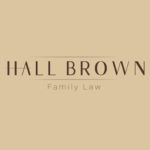Wills & Trusts Law Reports | Summer 2017 #168Mr and Mrs Onyearu were a married couple. Mr Onyearu was declared bankrupt in 2011 and Mr Armstrong was his trustee in bankruptcy. The question before the Court was whether Mrs Onyearu could rely upon the equity of exoneration in order to take a charge over her husband’s share of the matrimonial home.
Mr Onyearu was the sole registered proprietor of the matrimonial home in Catford (purchased in 2000), and he and his wife maintained that they beneficially owned the property in equal shares. In 2005, a loan facility was granted to Mr Onyearu by Bank of Scotland in order to pr...
Ellen Walker sets out the principles applied where a party seeks to protect their interest against a trustee in bankruptcy using equitable principles ‘The particular facts of each case need careful consideration to determine whether the equity applies.’The equity of exoneration arises where property is jointly owned by parties A and B, and B incurs …
Continue reading "Insolvency: Beyond reach"
This post is only available to members.
Sarah Haren explores the lessons from Graham-York v York [2015] on the quantification of beneficial interests in the family home ‘The court’s task is to work out what shares would be fair having regard to the whole course of dealing between them in relation to the property.’The Court of Appeal’s decision in Graham-York v York …
Continue reading "Beneficial Interests: When equity is not equality"
This post is only available to members.

